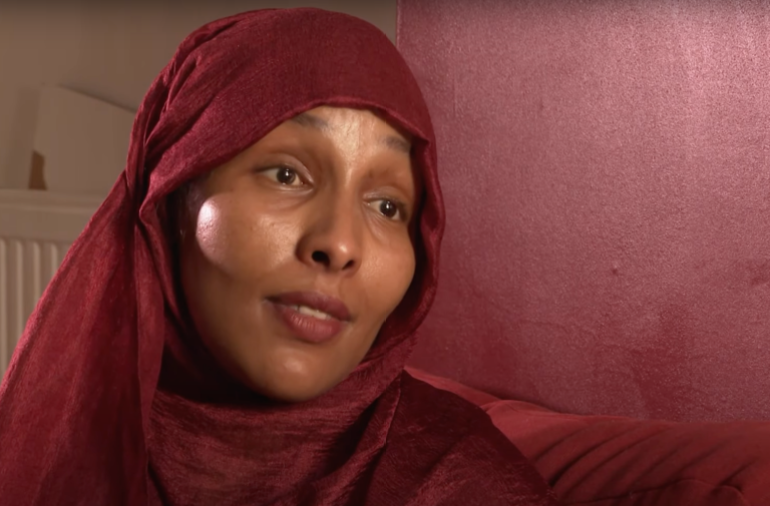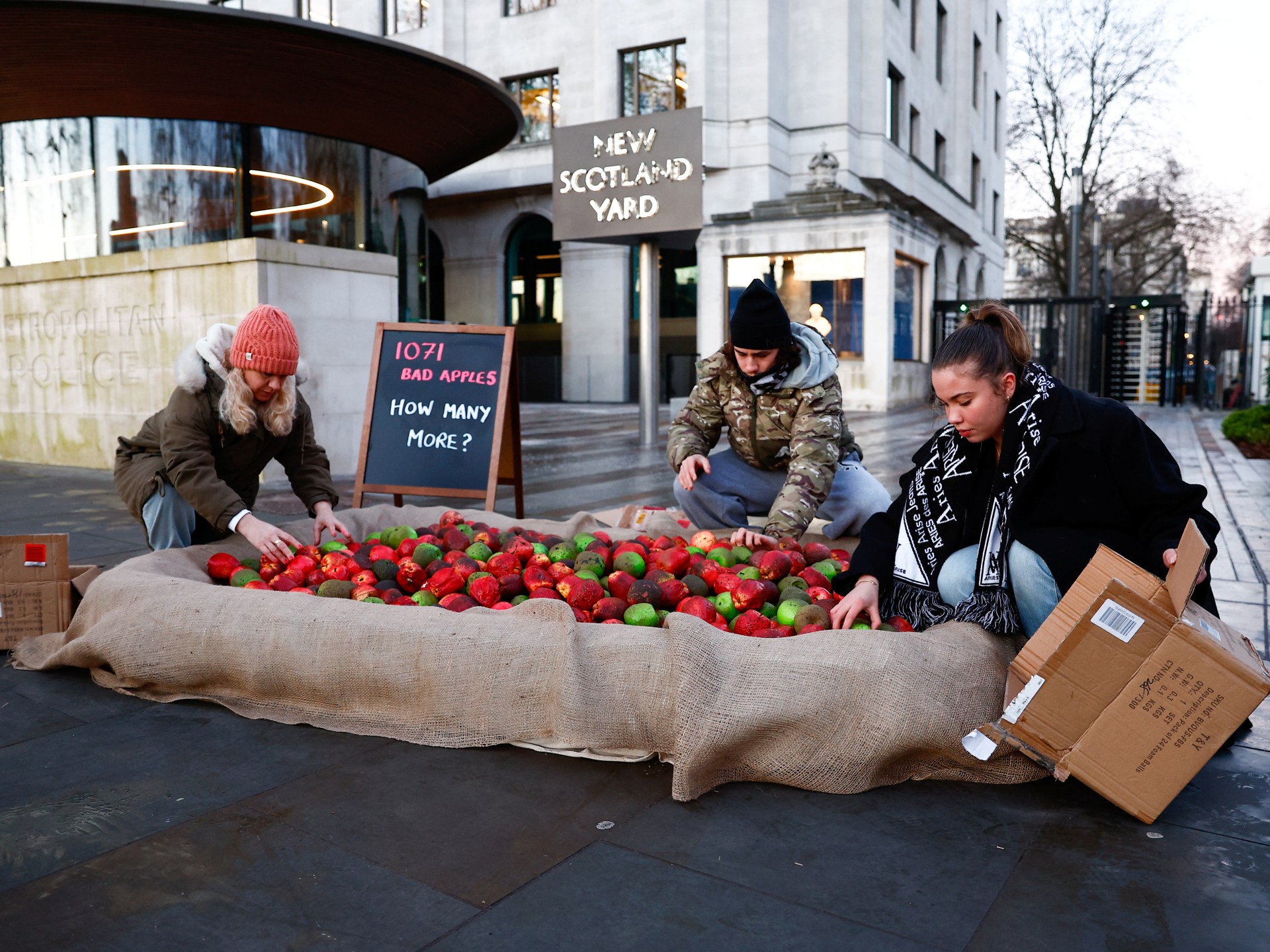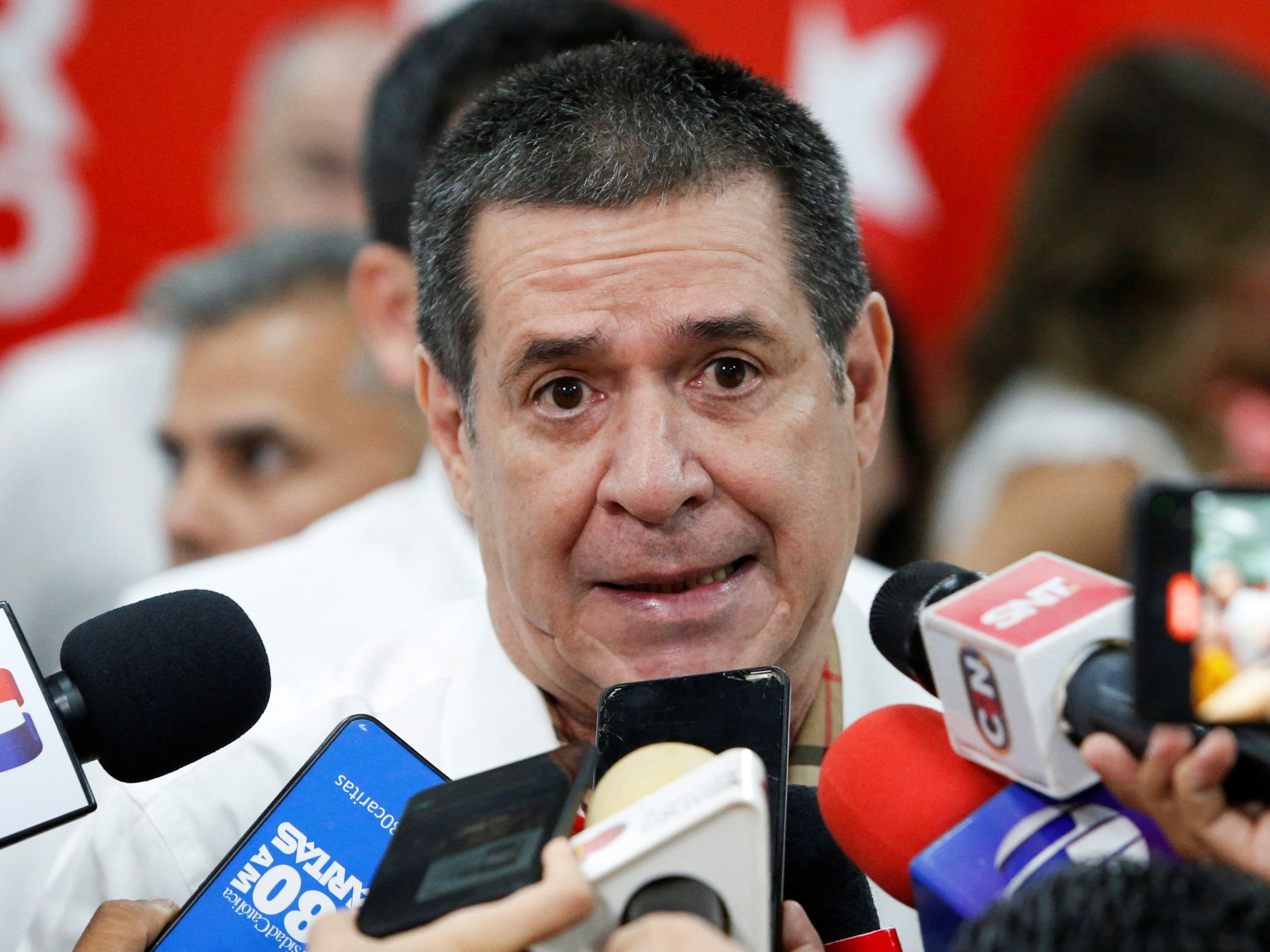With criminals in the ranks, trust in London’s police force sinks
London, United Kingdom – Can London’s police force ever recover public trust?
The Metropolitan Police Force’s Commissioner, Sir Mark Rowley, is certainly banking on the expectation that it can.
Many would say it’s an almost insurmountable task. But the alternative is unthinkable.
The force is the first port of call for law enforcement and prevention of crime in the United Kingdom’s capital – with unique responsibilities and challenges.
But a series of revelations of criminals within its ranks has badly damaged its reputation and called attention to its shocking failures of accountability.
The case of serial rapist and former Met Police officer David Carrick highlights how broken the system is in addressing the very serious issues of misogyny, corruption and police conduct within the force.
Carrick had carried out dozens of rapes and sexual offences against 12 women across two decades, yet despite repeated warnings over his conduct, the force’s vetting and misconduct process was shown to have been woefully inadequate.
The same could be said of Wayne Couzens, the police officer who kidnapped, raped and murdered Sarah Everard as she was walking home.
He, too, had been investigated over an allegation of indecent exposure six years beforehand while working for the Civil Nuclear Constabulary, yet no further action was taken and he was able to continue as an officer. He joined the Met Police and went on to work for the Parliamentary and Diplomatic Protection branch.
‘The police are sexist and misogynist’
Trust in London’s police force is at an historic low.
“It’s shockingly bad and pervasive,” says Harriet Wistrich, a lawyer and co-founder of the Centre for Women’s Justice.
“The Met have said they’re looking into about 800 to 1,000 officers who have had allegations against them for domestic abuse and sexual misconduct.”
But these complaints are not new; for years, the force has been accused of being replete with the worst forms of racism and misogyny.
“The experience of Black women and the police force has dated back much further than the last few years,” says Rahila Gupta of Southall Black Sisters, a human rights organisation advocating for Asian, African and Caribbean women who are victims of domestic violence.
“I think recently white women have woken up to the fact that the police are sexist and misogynist,” Gupta says.
“I don’t know why it’s taken so long because we’ve had that experience right from the beginning and it’s always been very difficult for us as a domestic violence agency to make that leap to go to the police for assistance because we know how they have behaved with the men in our community and also how they behave when they turn up to an incident of domestic violence.”

Sapah Jama is one such woman who sought help from Southall Black Sisters for her situation.
A British citizen from a Somali background, she had been repeatedly raped and abused by her uncle.
When she finally plucked up the courage to report him to the police, the response, she said, was one of disbelief.
“I wanted them to see the fresh marks I had on my body I said to her [the police officer], ‘This is what he last did to me, he burnt my back, I want you to know what he did to me’,” she pleaded to the officer.
“She said, ‘How do I know he did it?’. That was very sad for me, it crushed my fantasies I had about the police.”
Sapah broke down recounting the experience, which she says she was forced to do in an open area at the police station. At no point, Sapah said, was she offered a secluded space to report the highly sensitive details of the abuse she suffered.
What made it more painful for her was that the police officer she had gone to was an Asian woman.
Instead of understanding and sensitivity, she faced doubt and scepticism.
‘We have lost confidence’
In addition to this, refugee and migrant women who have suffered domestic abuse often find themselves stuck. Some say police will first look into their immigration status ahead of dealing with their abuser, if at all.
They may find themselves being arrested for breaching immigration regulations if their paperwork is not up to date.
“We need them for protection” says Gupta, “[but] we have lost confidence in them because of the dismissive, misogynist and racist ways they have dealt with women. It’s really a problem because women are then reluctant to call them when they need them.”
The current slew of failures and revelations of corruption have forced the Met to confront its own legacy.
The Met’s commissioner has launched a two-year “Turnaround Plan” aimed at revising standards and an inquiry has been set up to look into failures within the force.
Women’s organisations say more needs to be done to clean up the Met’s culture of impunity and appropriately deal with officers who have engaged in criminal behaviour.
“We think there should be a separate police force and there should be reciprocal agreements with neighbouring forces automatically when allegations like this are made,” says Wistrich, “and there need to be much better protection for whistle-blowers”
In the UK, policing is done with the public’s consent – and trust.
That trust, however, has been found to be lacking, in particular by society’s most vulnerable.
It will take an enormous effort and a serious redressing of its vetting process, too, to reassure people that it is a force to be trusted.




